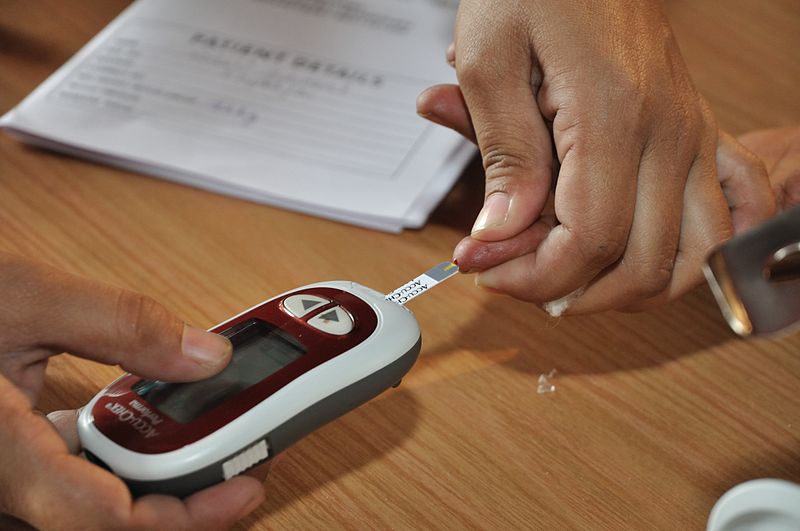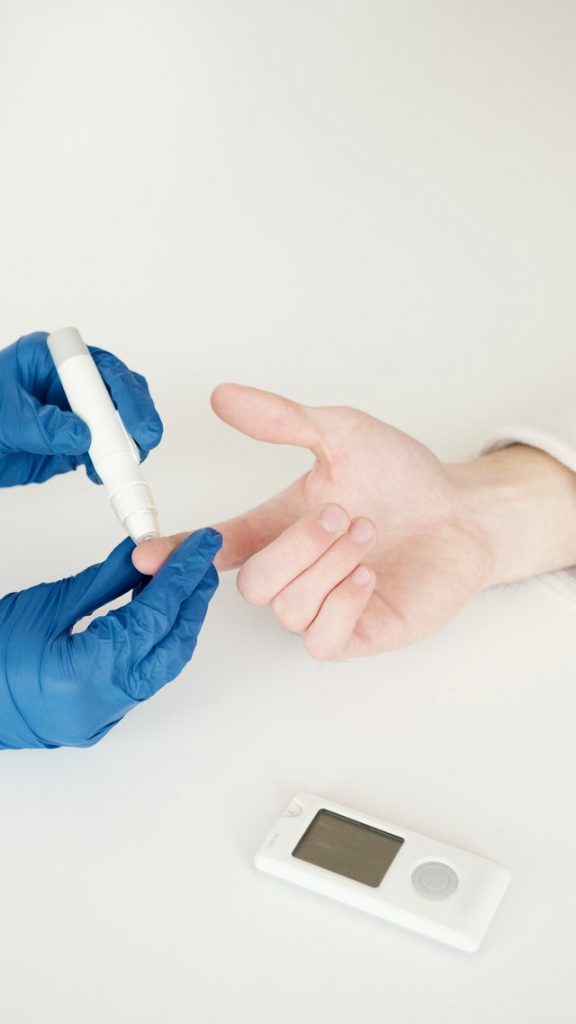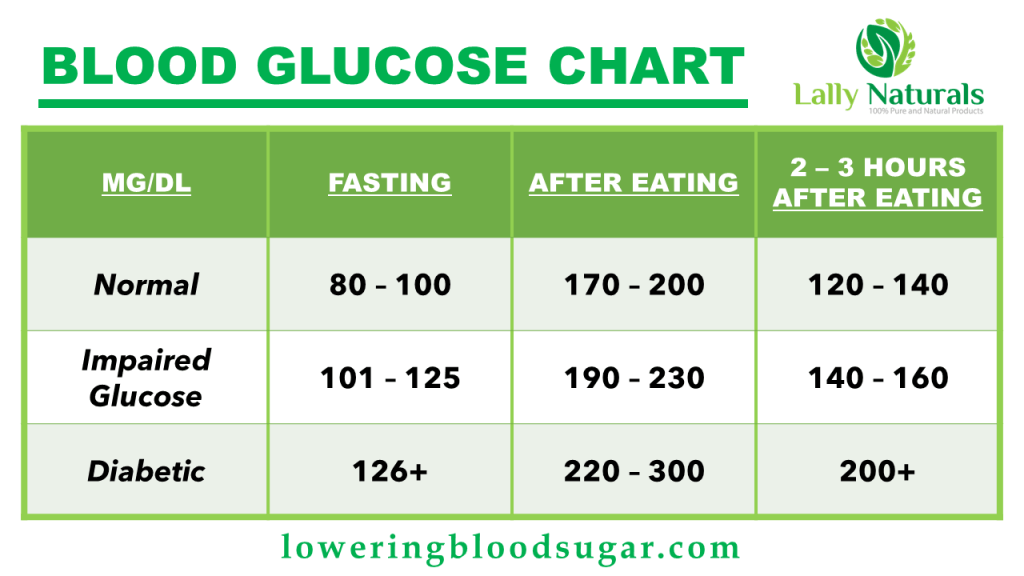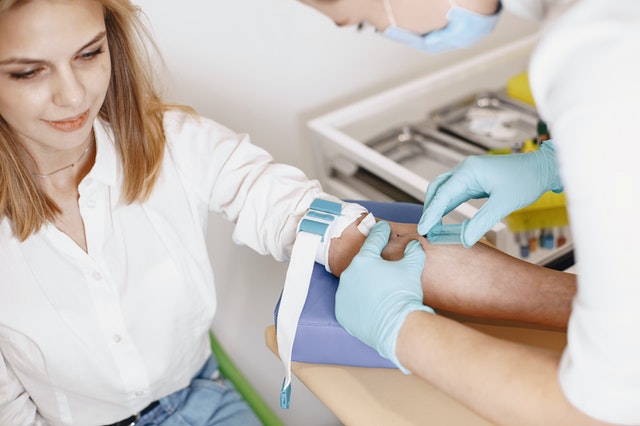Archive for November 2021

5 Ways to Control Your Blood Sugar Levels

Type II diabetes is the common type of diabetes that a lot of people suffer from. It’s what is otherwise known as the Adult Onset Diabetes. This happens when your body fails to efficiently utilize insulin.
Diabetes basically means that your blood glucose levels are higher than the normal level. Since your body fails to react to insulin properly, the glucose from the food that you ate will not be synthesized into energy which is needed by the cells in your body and instead, it stays in your bloodstream causing a high glucose levels in the blood. Overtime, when this problem is not addressed, it can lead to serious complications such as cardiovascular diseases, blindness, kidney failure, and problems with the nerves.
Ways to Avoid Blood Sugar Spikes and Dips
Although there are medicines that can help alleviate the symptoms, it’s always better to have a blood sugar support plan ready at hand. The best way to avoid the blood glucose spikes and dips is by changing your lifestyle. Here are 7 ways you can do to control your blood sugar:
1. Eat Nuts

Nuts are known to have healthy fats and have an effect on slowing down the body’s glucose absorption.
2. Exercise Regularly
Exercising has a lot of benefits – including regulation of blood sugar levels. Regular exercise helps you lose weight and is effective in increasing the body’s insulin sensitivity.
3. Include a Few Servings of Veggies on Your Diet
Vegetables such as broccoli, cucumber, and carrots contain less starch and are rich in fiber. These foods are a helpful blood sugar support while giving your body extra nutrients.
4. Manage Stress
When the body undergoes stress, the hormones that are released by the brain can cause blood sugar to rise. Research shows that a few minutes of meditation can help lower the blood’s sugar level.
5. Drink Lots of Water
Drinking lots of water can help in cleansing the body of excess sugar through urine. It’s also important to avoid drinks that are rich in sugar when you have a high blood glucose level.
Along with these tips on how to keep a normal blood sugar level, taking supplements such as Lally Naturals Blood Sugar Support can also help. Prevention is always better than cure so start taking baby steps to regulate your blood sugar level and avoid complications in the future.

Tips and Tricks to Keep Your Blood Sugar Level from Rising
Too high or too low sugar levels can lead to various complications and diseases. Usually when blood glucose is just a little bit over the border, mild symptoms could manifest. However, if it’s way above the normal level on a regular basis, you could have a chance developing a chronic disease. This is why recognizing the symptoms before it can develop into a full blown disease can be helpful in preventing the blood sugar from spiking up.
Hyperglycemia is the medical term used for when the person has a high blood sugar level. This happens when the body inefficiently uses insulin. And when insulin is not properly utilized, glucose (sugar naturally produced by the body and obtained from the food we eat) cannot be synthesized into a usable form of energy. As a result, a lot of this sugar stays within the bloodstream.
Ways to Keep Blood Sugar Levels Balanced
This is where blood sugar support comes in. Blood sugar support is needed to help the body regulate the glucose in the blood. Along with this, there are also other ways in which you can keep your blood sugar levels steady:
1. Spice up your meal

Cinnamon, cloves, rosemary, oregano, and other spices are good spice companions when you’re looking to decrease your blood sugar levels.
2. Add protein during meal time
The body tends to absorb proteins more slowly than any other food types. As a result, the bloodstream also absorbs glucose slowly. Proteins also help our satiety center satisfied for quite a while thereby reducing our sugar cravings.
3. Get Enough Rest and Sleep
Getting the recommended eight hours of sleep each night can help prevent blood glucose levels from rising. When you don’t get enough hours of a good night sleep, the tendency is that it makes it harder for glucose to work on cells causing them to stay in the bloodstream.
In order to notice a difference in your health, you would need to discipline yourself to do these blood sugar support tips and tricks. Start by incorporating one of these into your daily routine and your blood sugar levels will be as normal as it can be in no time.
If you’re not taking any supplements for blood sugar regulation, Lally Naturals Blood Sugar Supplements is made up of a mix of herbs such as cayenne, banaba, Gymnema sylvestre along with others that are great in helping your blood sugar level at bay.

Fasting Blood Sugar and Chart
Fasting Blood Sugar and Chart – There are different tests for testing Blood glucose – Random or Fasting Tests.
Fasting Blood Sugar Test
Fasting Blood Sugar test means that no food or drinks (except for water) be consumed eight hours before the actual test. It is better to schedule the fasting test in daytime or first thing in the morning so that fasting won’t be hard since you were already in a fasting state when you were asleep.
Random Blood Sugar Test
Unlike the fasting test, this test allows you to eat and drink even right before the glucose test.
More Common: Fasting Blood Sugar Test
The fasting test is more common since this test is said to get much more accurate results compared to the random glucose test. In addition, fasting glucose test is easier to interpret. Fasting Blood Sugar and Chart
It is important that before the test starts, inform your doctor about all the medications you have been taking, both prescription drugs, over-the-counter-drugs, and even supplements whether herbal or not. Your doctor might ask to pause from taking your medications or just to change the dose before the blood glucose test. This is important to get accurate results since there are medications that may affect the body’s blood glucose levels.
Here are certain Medications that may affect blood sugar levels:
- corticosteroids
- diuretics
- birth control pills
- hormone therapy
- aspirin (Bufferin)
- antipsychotics
- lithium
- epinephrine (Adrenalin)
- tricyclic antidepressants
- monoamine oxidase inhibitors (MAOIs)
- ·phenytoin
- sulfonylurea medications
Blood sugar levels increases when a person gets stress from certain circumstances such as:
- surgery
- trauma
- stroke
- heart attack
You should tell your doctor if you’ve recently had any of these.
What happens during a Blood Sugar Test?
Blood sample is taken by using a device that merely pricks a finger to get that small blood sample. In other tests, blood from a mere prick is not enough that is why doctors would collect blood directly from a vein.
1. Before collecting the blood sample, the nurse/healthworker in charge would first clean the area where the blood is taken from, usually by wiping the area with cotton with alcohol to kill germs.
2. Second step uses a method that makes a vein visible. Usually, this method uses an elastic band to wrap around the upper arm. Once the vein is visible enough, a sterile needle will be inserted to collect the blood. It is important to relax your arm to reduce the moderate pain from the needle.
3. After collecting the blood, the nurse/healthworker removes the needle and covers up the skin with a band-aid.
4. The blood sample is then transferred to the laboratory to be tested. Fasting Blood Sugar and Chart
5. When the results are ready, the doctor will then discuss what’s in the result.
What are the Possible risks associated with a blood sugar test?
There is very little chance that people who get their blood tested develop health problems. Although the chances are very little, it is not definitely zero percent. Fasting Blood Sugar and Chart There are possible risks such as:
- multiple puncture wounds if it’s difficult to find a vein
- excessive bleeding
- lightheadedness or fainting
- hematoma, or blood collecting under your skin
- infection
Results of Blood Glucose tests
Normal Blood Test Results
The results depend on whether the test was the Fasting Blood Sugar test or the Random Blood Glucose Test. For the fasting blood sugar test, normal levels is between 70mg per deciliter and 100 mg per deciliter (mg/dL). On the other hand, the random blood sugar test levels are usually under 125mg per deciliter. However, the exact levels will still depend on what you ate last. Fasting Blood Sugar and Chart
Abnormal Blood Test Results
Again, the results depend on whether the test was the Fasting Blood Sugar test or the Random Blood Glucose Test. For the fasting blood sugar test, the results listed below will indicate whether there are signs of prediabetes or diabetes:
- A blood glucose level of 100–125 mg/dL indicates that you have prediabetes.
- A blood glucose level of 126 mg/dL and higher indicates that you have diabetes.
On the other hand, the random blood sugar test levels the results listed below will indicate whether there are signs of prediabetes or diabetes:
- A blood glucose level of 140–199 mg/dL indicates that you may have prediabetes.
- A blood glucose level of 200 mg/dL and higher indicates that you likely have diabetes.
If your random blood glucose test results are abnormal, your doctor will probably order a fasting blood glucose test to confirm the diagnosis or another test such as an Hgba1c.

High Blood Sugar Symptoms
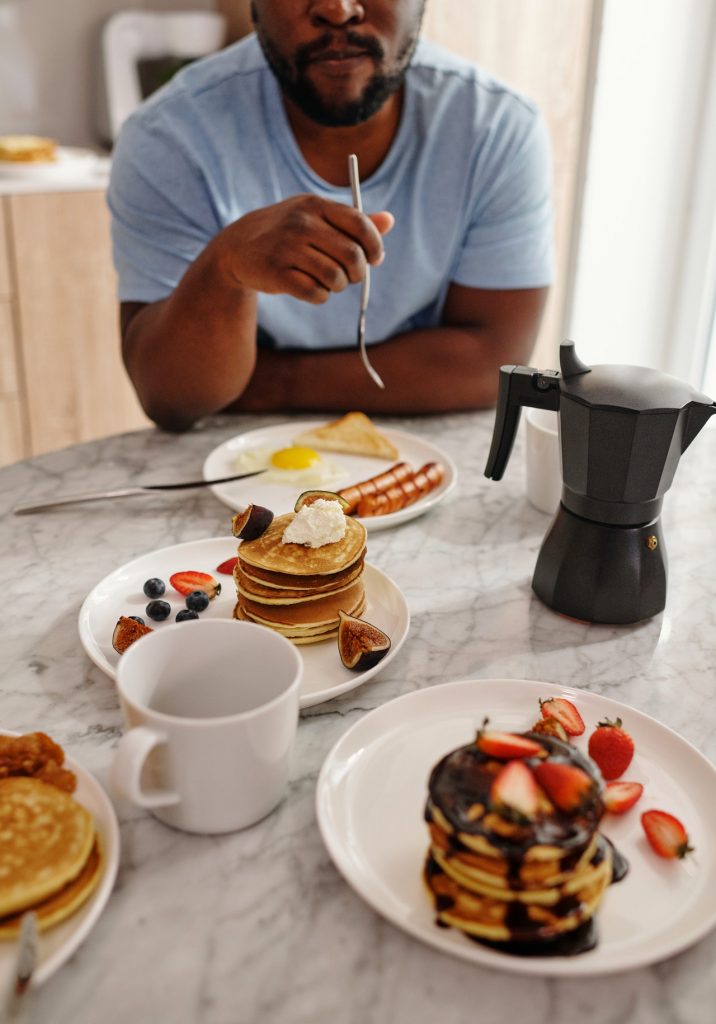
High Blood Sugar Symptoms – Naturally, human beings have sugar (also known as glucose) in the blood. Normal levels of blood sugar gives energy for the cells and organs in the body to function. However, having too much is bad.
Blood sugar is naturally produced from the liver and from the muscles in the body, however, most human beings get too much from food and drinks containing carbohydrates. Hyperglycemia is a condition wherein it means that there is way too much sugar in the blood. Having too much blood sugar (or having high blood glucose) means that the body lacks enough insulin to keep blood sugar levels at a normal state.
What is insulin?
Generally, insulin is a hormone that helps the body transform the foods or drinks we consume into energy. Insulin also helps directs blood sugar to be stored in the liver, muscles, and in fat.
Without enough insulin, blood sugar will not be stored or converted to energy, and instead, it will dangerously build-up which will cause serious health problems such as diabetes.
Hyperglycemia
What is hyperglycemia? What causes hyperglycemia?
Right amounts of blood sugar is fuel for the body. However, too much does not equate to more energy… in fact, too much blood sugar causes the opposite of having a boost in energy.
| High Blood Sugar (Hyperglycemia) What is hyperglycemia? What causes hyperglycemia? Right amounts of blood sugar is fuel for the body. However, too much does not equate to more energy… in fact, too much blood sugar causes the opposite of having a boost in energy. |
High Blood Sugar Symptoms
What does it feel like to have high blood sugar?
A number of high blood sugar symptoms can happen, such as:
– Drowsiness especially right after eating
– Have headaches or other aches in the body
– Thirsty or hungry all the time
– Difficulty in concentrating
– Blurry vision
– Feels bloated
– Urinates more often
– Wounds or skin injuries might take more time to heal

Caution: Low insulin and having high blood sugar levels can lead to diabetic ketoacidosis (DKA), which is a serious complication that will need urgent medical attention.
Common symptoms may occur, such as:
– Shortness of breath
– Rapid beating of the heart
– Breath might smell fruity
– Disorientation
– Vomiting
– Dehydration
– Comatose
Blood sugar levels may reach over 250ml/dL. High blood sugar symptoms may be experienced at any time of the day, even in the morning for those who are suffering from diabetes.
What are the effects of high blood sugar in the body?
High blood sugar can lead to various symptoms and complications in the body. The following are examples of high blood sugar symptoms:
1. Frequent Urination – High blood sugar goes into the kidneys and urine which makes you more thirsty even when drinking lots of water.
2. Causes Unexplained Weight Loss – Even when there is high blood sugar in the body, high levels will cause the body’s cells to not get the glucose they actually need for burning fat and muscle.
3. Feeling Numb and Feels Tingling – High blood sugar can cause numbness, burning sensation, or tingling in the parts of the body such as the hands, legs, and even the feet. This complication of diabetes happens because of the diabetic neuropathy that happens after many years of having high blood sugar levels in the body.
High blood sugar symptoms cause harm to the body which will lead to long term complications:
1. May cause Heart Attack or Stroke
2. May cause damage or loss of eyesight.
3 May cause Kidney Problems
4. May cause skin problems such as slow healing of wounds or infections
Prevention of Hyperglycemia (High Blood Sugar)
Here are the different ways or strategies to prevent Hyperglycemia:
– Regularly check blood sugar levels, especially when it is advised by the doctor
– Take insulin, again, when advised by the doctor
– Ask for dietary help from licensed dietitians or nutritionists to ask help what your best diet would be.
– Always be mindful and take precautions to avoid any infections or certain diseases
– Get regular exercise. Home exercise or go to the gym, either way.
– Get enough sleep and avoid way too much stress as much as possible by engaging in stress-reducing activities.
Fortunately, at this day and age, testing kits for checking blood sugar levels are readily available in the market and may be purchased and used at home. For a more accurate reading, it is best to check with your doctor.
Low blood sugar (hypoglycemia)
When does low blood sugar occur? Some of the factors that increases the risk of low blood sugar includes:
a. Being diagnosed with certain medical conditions
b. Taking certain medicationsExercising too much
c. Skipping meals or eats way too little
d. Taking too much insulin can also be one that causes low blood sugar.
Low blood sugar symptoms are:
– Feels weak
– Feeling hungry
– Feeling nervous or anxious
– Feeling the chills
– Feeling irritable
– Experiencing fast heartbeat
– Palpitations
To help with hypoglycemia, fruit juice or eating something sweet will help with the symptoms. For more information about your health, it’s best to consult with your doctor.
Type 1 Diabetes
As researched by the American Diabetes Association, 5% of the population which already has diabetes suffer from the type 1 diabetes.
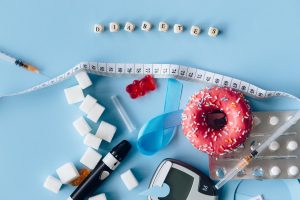
When the body lacks insulin, high blood sugar levels occur. Unfortunately, this happens because the immune system somehow attacks the cells in the body that produces insulin/ The cells in the pancreas produces the insulin we need in the body. If the body cannot naturally produce insulin, people, especially those with diabetes, would resort to take insulin through the methods medically available such as taking it via needle, a pen, or insulin pump. Insulin is vital in the body to keep blood sugar levels in the normal condition.
What causes Type 1 Diabetes?
In recent studies, researchers believe that people with a family history of type 1 diabetes is more likely to also be passed on to next generations. However, certain environmental factors such as viruses and infections may also cause the same.
Unfortunately, once diagnose with type 1 diabetes, there is no turning back. Dietary changes, regular exercise, or other healthy lifestyle choices will not undo it. It can happen at any time in our lives even during childhood.
Type 2 Diabetes
In this type, the body produces insulin but the problem is that the body is not able to utilize it. Yes, the pancreas makes insulin but cannot make enough to make sure the blood sugar level is at a stable or normal state. This effect is also known as “insulin resistance.” How should people take care of themselves when they have type 2 diabetes?
Taking insulin, proper medical pills, proper diet and exercise will definitely increase the chances to help manage blood sugar levels.
What causes Type 2 Diabetes?
Certain factors may cause to develop type 2 diabetes, such as the following:
- Certain genetics, especially when having a parent or sibling with type 2 diabetes
- Being overweight and being inactive most of the time
- Certain ethnicities are more prone to develop type 2 diabetes such as the African-American, Alaska Native, American Indian, Asian-American, Hispanic, or Pacific Islander ethnicity
- People who are over the age of 45 years
- People who have a blood pressure of 140/90 or higher
- Those who have low levels of good cholesterol or those who have high levels of triglycerides
Gestational Diabetes

What is gestational diabetes? This occurs when, during pregnancy, the body is experiencing insulin resistance and high blood sugar levels. It is most vital to constantly monitor pregnant women’s blood sugar levels, as it can lead to lots of health complications for both the mother and the child. After delivery, this type of diabetes usually goes away.
People who have high blood sugar or experiencing high blood sugar symptoms should visit their doctor. Each person is different and therefore have different reactions and experiences.
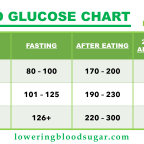
Blood Glucose Chart – Blood Sugar Levels for Adults
Blood Glucose Chart – Blood Sugar Levels for Adults
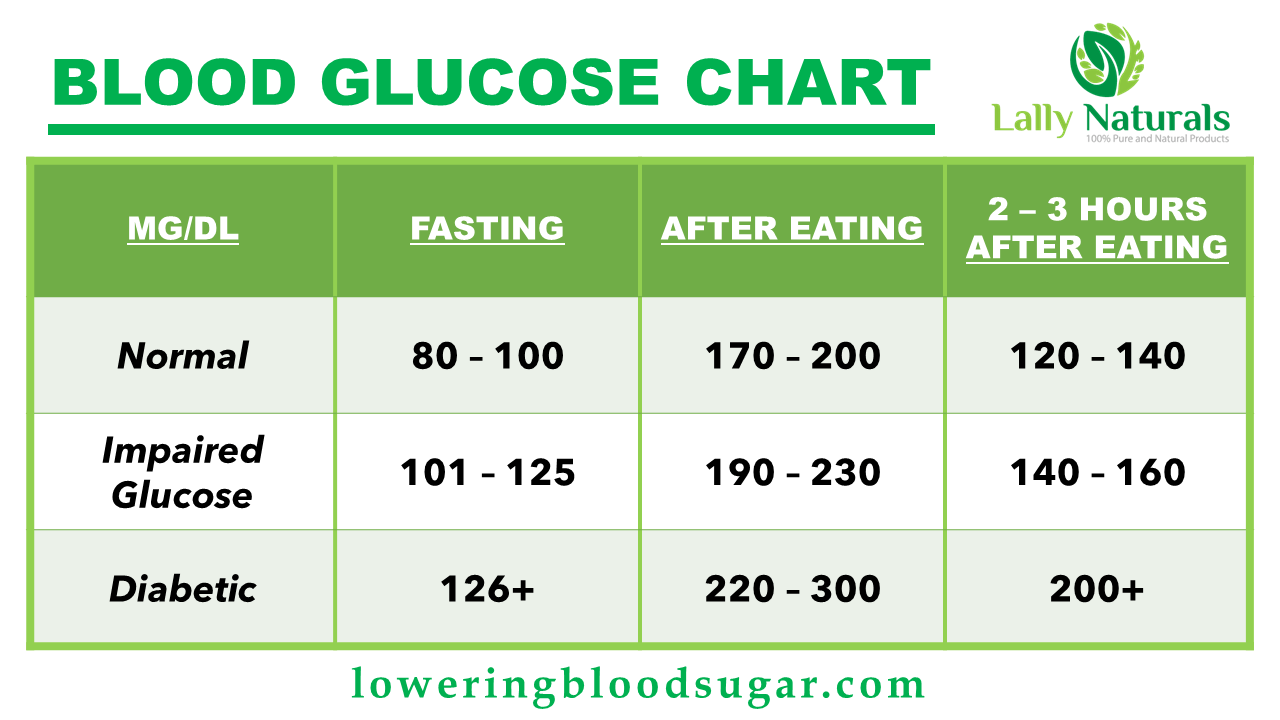
Blood Glucose Chart
Blood Sugar Levels for Adults With Diabetes
Be aware of changes in your body. There are common symptoms that cannot be ignored and would indicate that you have fluctuating blood sugar levels and should manage the same. Fatigue, sugar cravings, thirsty all the time, weight loss, mood swings, frequent infections, heavy breathing and trouble exercising are one of these signs that should not be taken for granted.
Manage your blood sugar with the help of natural blood sugar support supplements such as Lally Naturals Blood Sugar Support Supplements. Lally Naturals Blood Sugar Support utilizes the power of twenty (20) synergistic ingredients to provide one of the most comprehensive, potent blood sugar regulator & stabilizer products available today. It also effectively supports weight loss & cardiovascular health.![]()
![]()
![]()
![]()
![]()
![]()
